The Role of Chemical Pest Control in Modern Pest Management
Pest control has evolved significantly over the years, with a combination of natural, mechanical, and chemical strategies used to manage infestations. Chemical pest control remains one of the most effective methods, especially for large-scale or persistent problems. These products are designed to target pests directly, providing quick and lasting results. However, it’s essential to use them correctly to minimize risks to humans, pets, and the environment.
Common Types of Chemical Pest Control Products
There are several categories of chemical pest control products, each designed to tackle specific pest problems. Here’s an overview of the most commonly used products:
- Insecticides:
Insecticides are chemicals formulated to kill or repel insects. They come in various forms, including sprays, baits, and powders. Some are designed for immediate knockdown, while others have residual effects that continue working over time. Insecticides are commonly used to control pests like ants, roaches, mosquitoes, and bedbugs. - Rodenticides:
Designed to control rodent populations, rodenticides are toxic substances that target mice and rats. They come in bait forms that attract rodents, leading to ingestion and eventual elimination. Due to their toxicity, rodenticides require careful placement to avoid accidental exposure to non-target animals. - Fungicides:
While not traditionally thought of as pest control products, fungicides are essential for managing fungal pests that affect plants and structures. They prevent and eliminate fungal growth that can damage crops, lawns, and even wooden structures. - Repellents:
Unlike insecticides or rodenticides, repellents don’t kill pests but instead deter them from entering certain areas. They’re often used around homes, gardens, and outdoor spaces to prevent infestations before they start.
How These Chemicals Work
Pest control chemicals work by disrupting essential biological functions in pests. For example:
- Insecticides may target the nervous system, causing paralysis and death.
- Rodenticides often interfere with blood clotting, leading to fatal internal bleeding in rodents.
- Fungicides inhibit the growth of fungal cells, preventing the spread of mold and mildew.
- Repellents work by creating an environment that pests find unappealing through strong scents or irritating compounds.
The effectiveness of these products depends on correct application, proper dosage, and understanding the pest’s biology.
Safety Considerations for Using Chemical Pest Control Products
While chemical pest control is highly effective, safety should always be a top priority. Here are some important tips for using pesticide products safely:
- Read Labels Carefully: Always follow the manufacturer’s instructions regarding application, dosage, and safety precautions.
- Wear Protective Gear: Use gloves, masks, and protective clothing when handling chemicals to minimize skin and respiratory exposure.
- Store Chemicals Properly: Keep pest control chemicals out of reach of children and pets, and store them in original containers with clear labels.
- Avoid Overuse: More isn’t always better. Overusing chemicals can lead to resistance in pests and potential harm to the environment.
- Consider Professional Help: For severe infestations, hiring a pest control professional ensures safe and effective application of chemical products.
Conclusion
Understanding the different types of chemical pest control products and their uses can help you make informed decisions when tackling pest problems. From insecticides and rodenticides to fungicides and repellents, each product serves a specific purpose in managing pests effectively. However, always prioritize safety—both for your household and the environment—when using chemical pest control methods. If you’re unsure which approach is best for your situation, let the experts at Horizon Pest Control handle it for you. Contact us today to learn more about our safe and effective pest control solutions.

